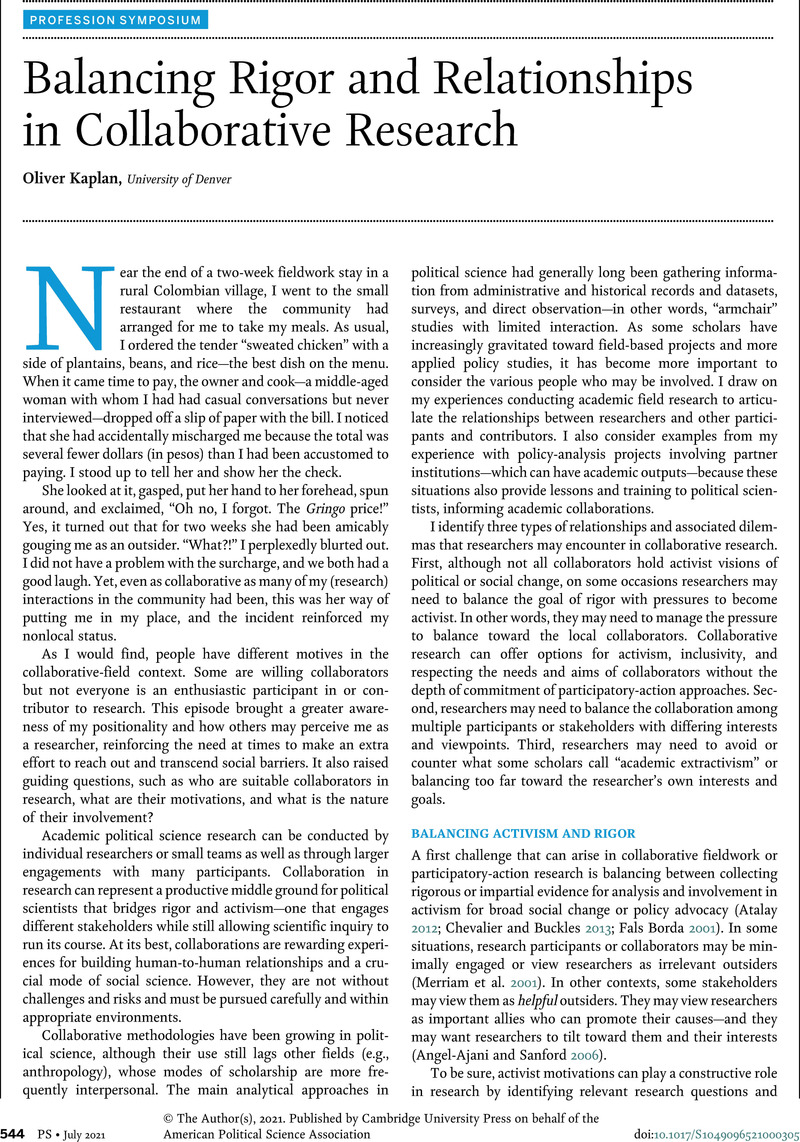Crossref Citations
This article has been cited by the following publications. This list is generated based on data provided by Crossref.
Flores, Thomas Edward
2021.
Everyday Democracy Indicators? How the Study of Democracy Illuminates the Value (and Challenges) of Collaborative Methodologies.
PS: Political Science & Politics,
Vol. 54,
Issue. 3,
p.
565.
Mikhael, Drew
and
Norman, Julie
2021.
Collaboration in Commissioned Research: Benefits and Challenges of Scholar–Practitioner Partnerships in Conflict Contexts.
PS: Political Science & Politics,
Vol. 54,
Issue. 3,
p.
554.
Mitra, Ankushi
Kline, Curtis
and
Bautista-Chavez, Angie M.
2024.
Civically engaged research in political science: a methodological guide.
Politics, Groups, and Identities,
p.
1.
O’Neill, Ella
and
Luger, Jonathan
2024.
Meeting equitable (health) needs: a call for radical reflexivity in implementing interventions for just health outcomes.
Cities & Health,
p.
1.
Mitra, Ankushi
McNew-Birren, Jill
and
Nickels, Ashley E.
2024.
Who counts in civically engaged research? Rethinking expertise and authority in politics.
Politics, Groups, and Identities,
p.
1.



